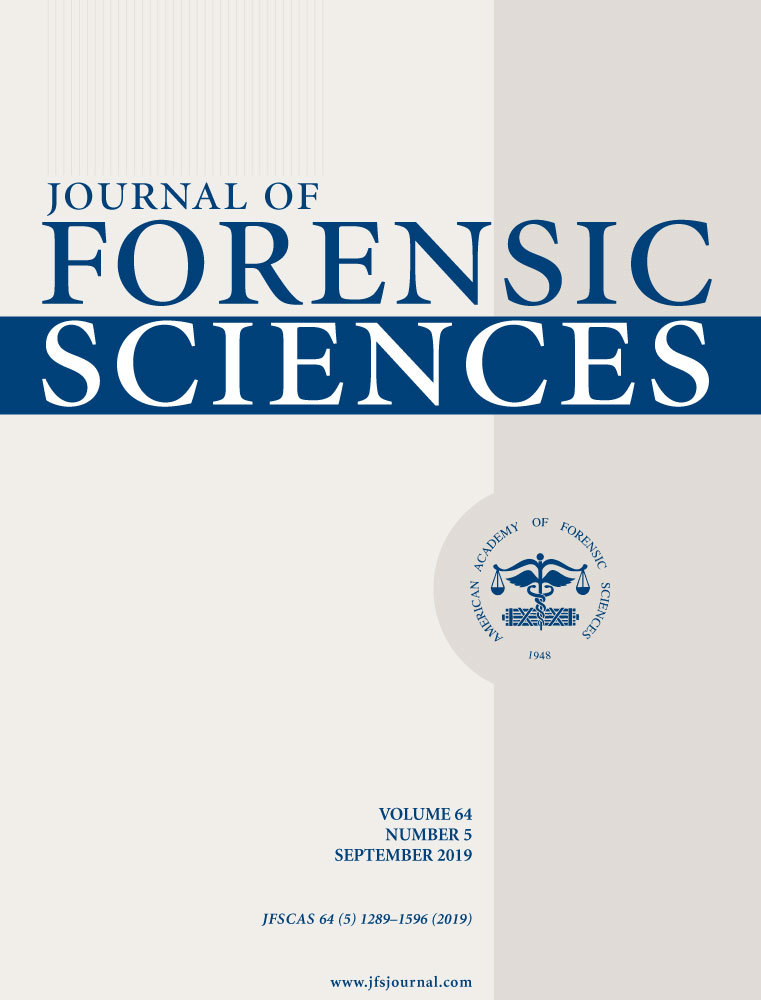PTSD Symptoms Experienced and Coping Tactics Used by Crime Scene Investigators in the United States
Abstract
Few investigations have assessed the prevalence of posttraumatic stress experiences among Crime Scene Investigators (CSIs). We recruited a nationwide sample of 225 CSIs to complete online questionnaires assessing PTSD symptoms, use of specific coping tactics, perceived social support, trait resilience, and demographics. Seven symptoms had been experienced by at least 50% of participants during the previous month, and 9.3% had total checklist scores suggestive of PTSD. A significant regression analysis revealed that higher PTSD scores were associated with drinking alcohol more frequently to deal with stress, admitting more frequently one could not deal with stress and not trying to do so, lower social support, getting angry and letting emotions out more frequently, lower resilience, and finding comfort in one's religious beliefs. Given the proportions of CSIs that experience exposure-related stress, more should be done to mitigate the prevalence and severity of these symptoms.




